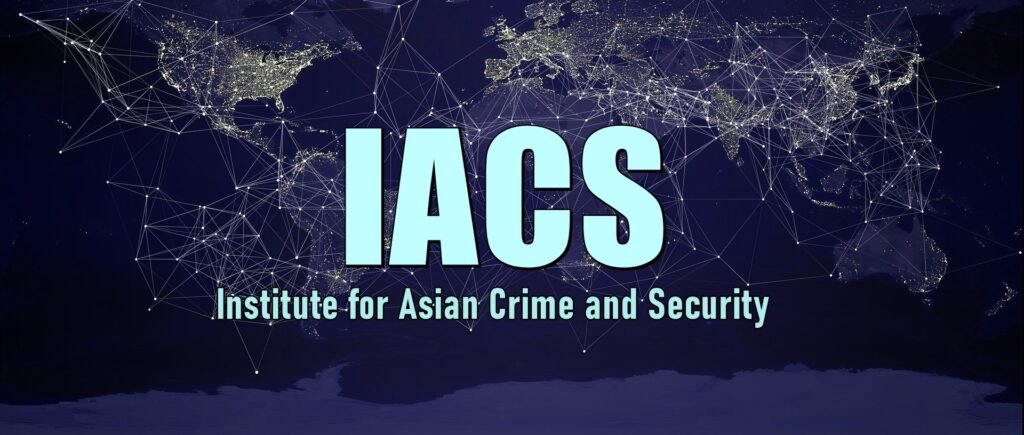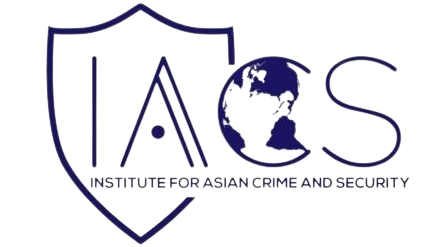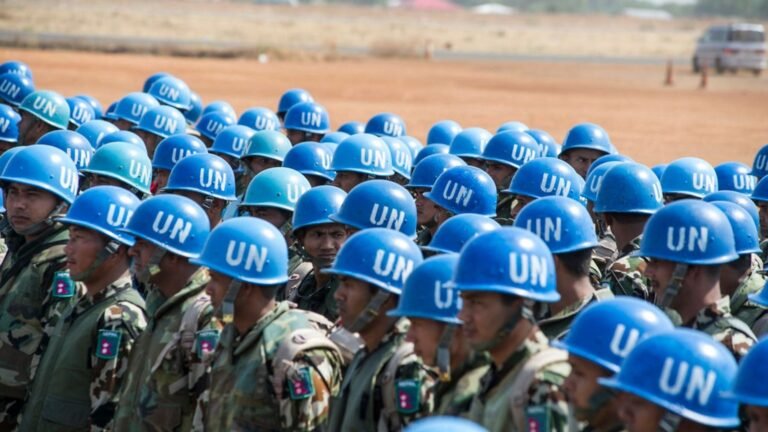On February 1, 2021, Myanmar’s military – the Tatmadaw – staged a coup and detained hundreds of civil servants, activists, and politicians, including the de facto civilian leader, and head of the National League for Democracy (NLD), Aung San Suu Kyi. The coup effectively nullified the November 2020 election results, within which the NLD had achieved a resounding victory and one which would have drastically reduced the Tatmadaw’s influence in domestic affairs. The reversion of Myanmar’s governing structure, from hybrid regime to military junta, was internationally condemned, with many nations offering indirect assistance to settle the rising tensions (Martin, Dolven, & Smith, 2021). The principal of these is the United States, which made it clear they were willing to play an intermediary role to prevent any further conflict. However, Russia and China actively opposed the involvement of the United States and the United Nations Security Council (UNSC). The international community was therefore left reliant on the intervention of the Association of Southeast Asian Nations (ASEAN) to solve the crisis in Myanmar, primarily due to Myanmar’s membership status within that regional bloc.
Unfortunately, in the months since the coup, ASEAN has done little to dampen the powder keg of domestic tensions which continue to build in Myanmar. While a recent ceasefire was declared between Myanmar’s Junta regime and the opposing armed ethnic groups (IANS, 2022), current figures estimate over 1,450 people have been killed since the coup, and another 8,500 remain in detention (AAPP, 2022). This, alongside the recent imposition of a four-year prison sentence upon Aung San Suu Kyi (Reuters, 2022), indicates that the nation’s troubles are far from resolved.
Both critics and proponents of ASEAN have criticized its member states for not doing more to halt the bloodshed (Enos & Coe, 2021; Chongkittavorn, 2021). Diverging priorities (due to distinct cultural and religious divisions between its members), counter-intuitive trade deals with the junta, and a limited strategic vision are the most prominently cited reasons for the bloc’s inaction (Dunst, 2021; Ebbighausen, 2021; Islam & Rahman, 2022). Given ASEAN’s fundamental principles and its history of non-interference in member states’ internal affairs, this situation is unsurprising. However, the strong outcry from the bloc’s Muslim-majority members (i.e. Indonesia, Malaysia, and Brunei) prompts the following question: Could the crisis in Myanmar act as a catalyst for the fragmentation of ASEAN?
To investigate this, a cursory summary of the Myanmar-centric actions taken by ASEAN and its member states in the last eleven months will be provided. This will be followed by a discussion on whether the Myanmar crisis has become the catalyst for potential fragmentation of ASEAN, supported by widening pre-existing divisions, or is a rare opportunity to strengthen the bloc.
ASEAN (In)Action and Rogue Diplomacy?
Among its fundamental principles, ASEAN has had a long-standing policy of “non-interference in the internal affairs of its members” (ASEAN, 2021). As with the continuing migrant crisis, apparently due to the persecution of minorities, the response of ASEAN to the Myanmar coup has been limited (Latiff, Allard, and Mcpherson, 2021). Muslim majority members of ASEAN (i.e. Indonesia, Brunei, and Malaysia), who were already vocal against the persecution of the Rohingya minority in Myanmar, and ASEAN member Singapore, were the only members to voice concern over the coup. However, like other ASEAN members, they did not volunteer assistance.
The tone shifted in April, in lieu of worsening violence when the first-ever ASEAN Summit was called to handle a domestic crisis affecting a member nation (Reuters, 2021). Representatives met with Myanmar’s coup leader, Senior General Min Aung Hlaing, and together they developed and agreed on a five-point consensus: cease the violence, establish constructive internal dialogue, deploy an ASEAN envoy to facilitate internal dialogue, provide aid, and ensure safe-access of an ASEAN delegation to assess the situation (Jaipragas, 2021). General Hlaing accepted the terms, and member states considered this as a viable solution to the crisis in Myanmar (Lee, 2021). However, after the summit, the junta retracted their compliance by escalating the violence and ASEAN fell silent. The five-point consensus was later adopted by the UNGA in their resolution (Taylor and Westfall, 2021), but it was not until many months later (late October) that ASEAN offered a direct rebuke to the Junta.
In lieu of their annual summit, ASEAN leaders declined to invite General Hlaing or any other political leader from Myanmar, following lobbying by non-ASEAN states and entities, i.e. UN, USA, EU, and the UK (Latiff, Allard, and Mcpherson, 2021). While the exclusion was considered a major setback for the military junta, as they attempted to achieve global recognition as the legitimate governing body of Myanmar (Connelly, 2021), it did not temper the ongoing violence, which remains a major concern of ASEAN’s Muslim-majority members.
Following the summit, Cambodia took over the chairmanship of ASEAN from Brunei, and, in a drastic change of tone, opted to directly engage with the military junta (Strangio, 2021). First in a meeting with the junta’s foreign minister, Wunna Maung Lwin, in December, followed by a meeting in January between General Hlaing and Cambodian Prime Minister Hun Sen. During this period the rest of the Southeast Asian bloc has collectively maintained their exclusionary stance.
A Catalyst for Fragmentation or an Opportunity?
Unfortunately, if Cambodia maintains this divergent course, it will only widen the pre-existing divisions between Buddhist, Muslim, and Christian majority members of ASEAN. Many ASEAN Prime Ministers have labelled the direct engagement by the Cambodian government as ‘rogue diplomacy’ which ‘threatens to split the organisation [ASEAN]’ (APHR, 2022). The ‘rogue’ actions of the Cambodian government are just one example of the growing dissonance amongst ASEAN members. A dissonance which has begun to impact ASEAN cohesion and functionality, as evidenced via the recent postponement of a meeting between the bloc’s foreign ministers due to ‘travel difficulties, but which is almost certainly related to the bloc’s division over Myanmar’ (Strangio, 2022). Therefore, taking the above as any indication, if member states cannot reign in their diverging priorities, ASEAN may be condemned to serve as a hollow and symbolic association.
ASEAN is an association built on political, religious, and cultural diversity. To many, this diversity is a source of strength as it cultivates adaptability and inter-cultural communication skills, those skills essential to trade in our globalized world. However, greater diversity also brings a wider range of considerations and sensitivities needed to be accounted for. In this regard, ASEAN’s principle of non-interference in the internal affairs of its member states has allowed the bloc to circumvent this undesirable effect and therefore remain a neutral entity.
However, in the case of Myanmar, remaining apathetic and dismissive of Myanmar’s internal affairs has become increasingly difficult due to the escalation of violence, which has resulted in greater pressure on ASEAN from domestic and foreign entities. This has been further exacerbated by the inability of ASEAN to defer responsibility to other international powers for rather significant reasons. First and foremost, Russia and China have actively vetoed and objected to UNSC resolutions pertaining to Myanmar (Poonkham, 2022). This means that Western powers had and continue to have their proverbial hands tied. Another important reason is that the loose or decoupled intervention of foreign powers would present a greater threat to Myanmar’s stability, and therein ASEAN relevancy, than if they were to remain neutral. Previous lessons pulled from Nepal, Afghanistan, and Syria indicates that there is a greater chance for a peaceful resolution if domestic or regional players, i.e. those not selected by third parties or foreign powers, initiate and engage in dialogue and therein pursue a détente (Meininghaus & Mielke, 2021; Lederach & Thapa, 2018; Salamey, Abu-Nimer, & Abouaoun, 2018).
It is now that a rare opportunity presents itself. An opportunity for ASEAN to lead the response by becoming the prime mediator in negotiations between in-country actors (Heiduk, 2021) or through strategic intervention, such as the use of trade sanctions to coerce the junta into negotiations. By doing so, the Bloc would grow symbolically and also develop capacities that are in line with its core tenants of “economic, political, and security cooperation” (ASEAN, 2022). Unfortunately, for this to occur, ASEAN nations would need to have a constructive exchange of dialogue (Manurung, 2021), a problematic requirement given the postponement of ASEAN’s first 2022 meeting, but not an impossible one.
References
ASEAN. (2022). What We Do: Fundamental Principals. ASEAN. Retrieved January 6, 2022, from https://asean.org/what-we-do#fundamental-principles
British Broadcasting Corporation. (2021, October 16). Myanmar army general Min Aung Hlaing excluded from leaders’ summit. BBC. Retrieved from: https://www.bbc.com/news/world-asia-58938489
Chongkittavorn, K. (2021, August 27). Myanmar’s crisis tests ASEAN. Brookings: South East Asia Insights. Retrieved from: https://www.brookings.edu/blog/order-from-chaos/2021/08/27/myanmars-crisis-tests-asean/
Connelly, A. (2021, October 21). Why ASEAN’s rebuke of Myanmar’s top general matters. The International Institute for Strategic Studies. Retrieved from: https://www.iiss.org/blogs/analysis/2021/10/why-aseans-rebuke-of-myanmars-top-general-matters
Davies, E., Cameron-Moore, S. (2021, April 20). ASEAN calls summit on Myanmar as EU widens sanctions. Reuters. Retrieved from: https://www.reuters.com/business/media-telecom/asean-calls-summit-myanmar-crisis-eu-imposes-sanctions-2021-04-20/
Davies, E., Petty, M., Birsel, R., Maclean, W. (2022, January 10). Myanmar’s Suu Kyi faces six years in jail after new sentences -source. Reuters. Retrieved from: https://www.reuters.com/world/asia-pacific/myanmar-court-sentences-ousted-leader-suu-kyi-over-walkie-talkies-source-2022-01-10/
Dunst, C. (2021). The Myanmar Coup as an ASEAN Inflection Point. In Journal of Indo-Pacific Affairs, Special Issue (pp. 37 – 43). Retrieved from: https://media.defense.gov/2021/Aug/26/2002840264/-1/-1/1/DUNST.PDF
Ebbighausen, R. (2021, March 29). Myanmar coup: ASEAN split over the way forward. Deutsche Welle. Retrieved from: https://www.dw.com/en/myanmar-coup-asean-ties/a-57042503
Enos, O., Coe, P. (2021, July 21). ASEAN’s Response to Myanmar Coup Is Failing. The Heritage Foundation. Retrieved from: https://www.heritage.org/asia/commentary/aseans-response-myanmar-coup-failing
Heiduk, F. (2021). Civil war in Myanmar: a further escalation of violence looms on the horizon. (SWP Comment, 35/2021). Berlin: Stiftung Wissenschaft und Politik –
SWP- Deutsches Institut für Internationale Politik und Sicherheit. https://doi.org/10.18449/2021C35
Human Rights Watch. (2022). Myanmar (Burma). Retrieved January 6, 2020, from: https://www.hrw.org/asia/myanmar-burma
IANS. (2022, January 9). Myanmar to further extend ceasefire with ethnic armed groups until 2022 end. Business Standard. Retrieved from: https://www.business-standard.com/article/international/myanmar-to-further-extend-ceasefire-with-ethnic-armed-groups-until-2022-end-122010900066_1.html
Islam, M., & Rahman, M. (2022). Questioning the Crisis of “Rohingya Muslim” Ethnic Minority Beyond the Foreign Policy of Bangladesh and Myanmar. In Rohingya Refugee Crisis in Myanmar (pp. 135-171). Palgrave Macmillan, Singapore.
Jaipragas, B. (2021, April 25). Is Asean’s Myanmar five-point consensus workable, and what is next?. South China Morning Post. Retrieved from: https://www.isis.org.my/2021/04/25/is-aseans-myanmar-five-point-consensus-workable-and-what-is-next/
Latiff, R., Allard, T., Mcpherson, P. (2021, October 19). Tradition vs credibility: Inside the SE Asian meet that snubbed Myanmar. Reuters. Retrieved from: https://www.reuters.com/world/asia-pacific/tradition-vs-credibility-inside-se-asian-meet-that-snubbed-myanmar-2021-10-19/
Lederach, J. P., & Thapa, P. (2018). Staying true in Nepal: Understanding community mediation through action research. In Cultural Encounters and Emergent Practices in Conflict Resolution Capacity-Building (pp. 33-58). Palgrave Macmillan, Cham.
Lee, C. C. (2021, May 11). ASEAN Summit on Myanmar and the 5-Point Consensus. Asialink. Retrieved from: https://asialink.unimelb.edu.au/insights/asean-summit-on-myanmar-and-the-5-point-consensus
Manurung, H. (2021). Myanmar Unresolved Political Development: A Threat to ASEAN Unity and Democracy. European Journal of Science, Innovation and Technology, 1(2), (pp. 1-15).
Martin, M., Dolven, B., & Smith, K. (2021). Coup in Burma (Myanmar): Issues for U.S. Policy, February 4 update. Congressional Research Service, (pp. 3-4). Retrieved from: https://crsreports.congress.gov/product/pdf/IN/IN11594/1.
Martin, M., Dolven, B., & Smith, K. (2021). Coup in Burma (Myanmar): Issues for U.S. Policy, February 23 update. Congressional Research Service, (pp. 3-4). Retrieved from: https://www.justice.gov/eoir/page/file/1370371/download (CRS, 2021)
Meininghaus, E., & Mielke, K. (2021). Meaningful political participation: lessons learnt from UN mediation in Afghanistan and Syria. (BICC Policy Brief, 3/2021). Bonn: Bonn International Center for Conversion (BICC). Retrieved from: https://nbn-resolving.org/urn:nbn:de:0168-ssoar-74504-2
Muslimin, A.S.M., (2017, December 17). ASEAN’s Rohingya Response — Barely A Peep Outside of Malaysia. Forbes. Retrieved from: https://www.forbes.com/sites/anismuslimin/2017/12/17/aseans-rohingya-response-barely-a-peep-outside-of-malaysia/?sh=542bb27639de
Poonkham, J. (2022). A Paradise Lost in the Indo-Pacific? Great Power Politics and International Relations of the Myanmar Tragedy. In Demystifying Myanmar’s Transition and Political Crisis. (pp. 209-229). Palgrave Macmillan, Singapore.
Salamey, I., Abu-Nimer, M., & Abouaoun, E. (2018). Post-Conflict Power-Sharing Agreements. (pp. 978-3).
Strangio, S. (2021, December 7). New ASEAN Chair Cambodia to Push Engagement With Myanmar Junta. The Diplomat. Retrieved from: https://thediplomat.com/2021/12/new-asean-chair-cambodia-to-push-engagement-with-myanmar-junta/
Strangio, S. (2022, January 10). Cambodian Government Defends PM’s Myanmar Trip, Hails ‘Positive’ Outcomes. The Diplomat. Retrieved from: https://thediplomat.com/2022/01/cambodian-government-defends-pms-myanmar-trip-hails-positive-outcomes/
Strangio, S. (2022, January 13). Cambodia Postpones ASEAN Meeting Amid Myanmar Disagreements. The Diplomat. Retrieved from: https://thediplomat.com/2022/01/cambodia-postpones-asean-meeting-amid-myanmar-disagreements/
Taylor, A., Westfall, S. (2021, June 18). U.N. adopts resolution condemning Myanmar’s military junta. The Washington Post. Retrieved from: https://www.washingtonpost.com/world/2021/06/18/un-set-adopt-resolution-condemning-myanmars-military-junta/
The ASEAN Secretariat. (2021, April 24). Chairman’s Statement on the ASEAN Leaders’ Meeting, 24 April 2021 and Five-Point Consensus. ASEAN. Retrieved from: https://asean.org/chairmans-statement-on-the-asean-leaders-meeting-24-april-2021-and-five-point-consensus-2
Featured Image Credit: UN Photo/Rick Bajornas
About the Author: Kimon Kalliatakis is a Research Associate with the IACS. He holds a BSc in Security Studies and an MSc in Crisis and Security Management from Leiden University. Kimon is specialized in the governance of crisis and security, with emphasis on the forecasting of emerging threats.








